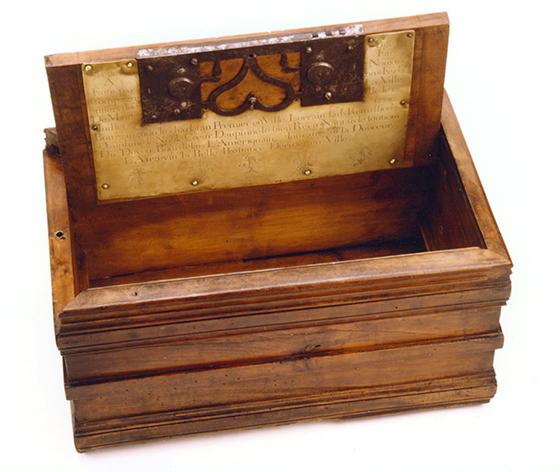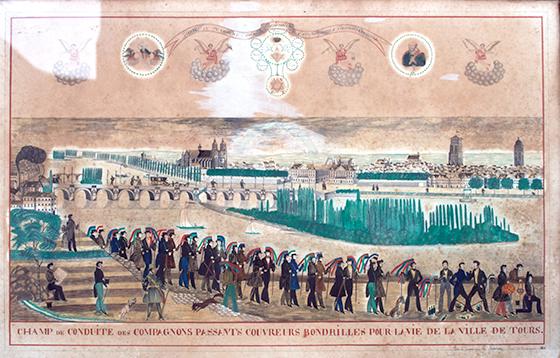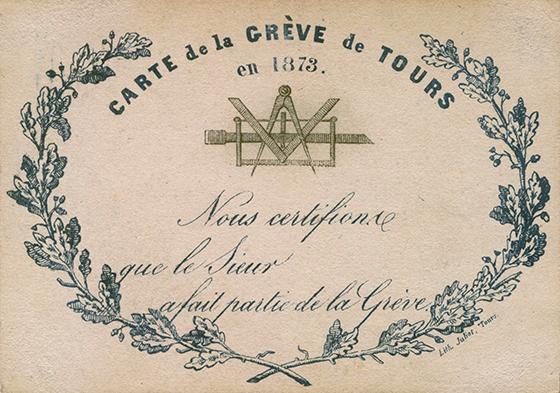Fraternity
The word ‘compagnon’ derives from two Latin words : ‘cum’ (with) and ‘panis’ (bread). A compagnon is someone with whom you share bread. Compagnons have a duty to help and succour one another; this obligation is based within the notion of fraternity.
The word ‘compagnon’ derives from two Latin words: ‘cum’ (with) and ‘panis’ (bread). A compagnon is someone with whom you share bread. Compagnons have a duty to help and succour one another; this obligation is based within the notion of fraternity.
Within a craft brotherhood everyone, compagnons as well as newcomers, call one another either « pays » or « coterie », terms corresponding roughly to ‘brother/comrade’. The first term is mostly found amidst the crafts working at ground level, the second among those working in height.
As far as the mid 19th century, the craft brotherhoods were constituted solely of young men on their Tour de France. They partook of the difficulties and rejoicing of this communal life and built strong bonds with one another. They had an assembly on Sundays where all contributed to a kitty that found many uses: to provide for the journey forward of a compagnon arriving penniless while no employment could be found for him; to pay for the board and lodging of a brother incapacitated by illness or accident, or his funeral if that should be the case; it could also finance collective celebrations. When a compagnon was hospitalised a roster was established to ensure he would be visited every day. The same solidarity was shown towards those imprisoned after brawls between rival groups of opposing rites.
In the days when the compagnons were in sufficient number to be reckoned with, they could force a bad employer to offer better working conditions by declaring a ban on his shop, thus depriving him of labour.
Once they had completed their tour de France the compagnons would ‘take grateful leave’ of their brotherhood and stop taking part in its running. At the end of the 19th century, some organised retirement funds.
As it appears, for centuries the Compagnonnage filled the functions of mutual insurance and workers’ union in addition to a skill training organism. The first two fell progressively into disuse when more inclusive unions and mutual insurances were created after the industrial revolution, followed later by nationwide health insurance. Nonetheless, the spirit of mutual assistance and fraternity lives on between compagnons.

The Companion Tinsmiths of Marseilles’ safe (1778)

Leading out of the Companion Roofers of Tours in 1838, by Lemoine

Map of the Companion House Carpenters of Tours’ strike, 1873
